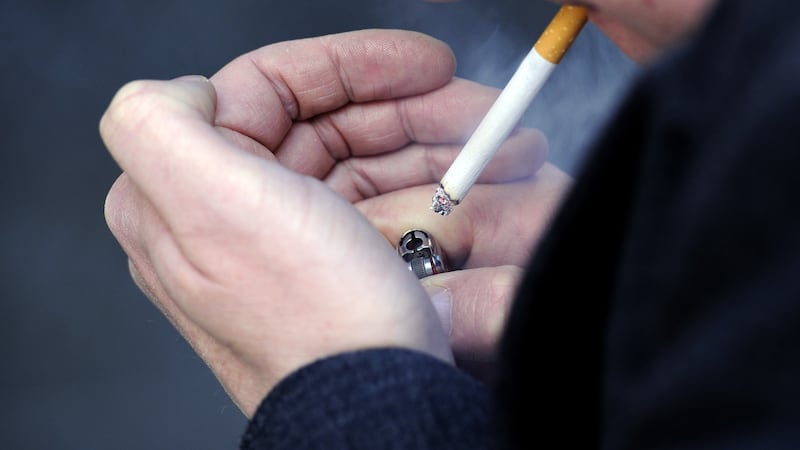As Sinn Féin Welfare spokesperson I have seen the positive impact that the north’s unique benefit top-up payments have had since they were introduced.
The £585m package, secured as part of the Fresh Start Agreement, did not defeat the malignant Tory agenda of welfare cuts, but they have significantly reduced the punitive impact of it here.
In recent weeks, both the Department for Communities and auditor general have demonstrated just how beneficial the mitigation package has been in terms of protecting the most vulnerable.
They have shown how almost 40,000 tenants here do not pay Bedroom Tax as a result of the mitigations; how families have been protected from the Benefit Cap and how many others have benefited from a range of other supplementary payments, greatly reducing the hardship caused by British Tory cuts to the welfare system. And while the positive impact has been highlighted, the department, the auditor, academics and aid groups have also all warned about the consequences of failing to continue with such bespoke protections here.
They are absolutely clear that, to do so, would result in the same kind of increase in child poverty, food bank use, rent arrears and evictions that is being witnessed in Britain.
We cannot allow that to happen and preventing it is a challenge that now faces us all as political representatives.
The cause and the origin of these cuts are, of course, the Tory government which is absolutely wedded to its ongoing assault on the Welfare system.
It has always been Sinn Féin’s position that the best bulwark against this destructive agenda is a reformed power-sharing government at Stormont. Later this week we will launch our policy proposals for an anti-poverty strategy which a new administration could take forward. But even in the absence of an assembly, there is still an opportunity for the political parties to secure a continuation of the north’s unique benefit top-up payments.
This has been confirmed by the departmental review which crucially acknowledges that mitigations can be continued beyond March 2020 within the existing legislation.
That provides a firm basis for cross-party agreement on a second phase of mitigations and I have already had discussions with the other parties towards that aim.
Sinn Féin is also involved in ongoing discussions with the department during which we are pressing for work to now begin on a second mitigation package.
I welcome the fact that campaigners and those working at the front line of the benefits system are making a similar case. They rightfully highlight the positive impact that the top-ups have had while warning about the disastrous consequences for the most vulnerable if they are suddenly ended next March.
Protecting the most vulnerable is a crucial duty of any administration so it is vital that we continue to oppose the British Government policies of welfare cuts – policies which they show no sign of ending – while also providing as much help as possible for those impacted by the Tory assault on the benefits system.
ALEX MASKEY MLA
Sinn Féin
Childhood Day is chance to stand against abuse
It is a shocking fact but it is estimated that one in five children in the UK have suffered the horrors of abuse or neglect. It doesn’t have to be this way and we are calling on the people of Northern Ireland to help us. The NSPCC’s second Childhood Day is taking place on June 1 and it is a day for us to stand together in Northern Ireland for every childhood and against abuse.
Every day the NSPCC in Northern Ireland is helping children and last year our Speak Out Stay Safe programme reached more than 67,000 primary school children, our centres in Belfast, Foyle and Craigavon worked directly with 500 children and families and our trained volunteer counsellors at our Childline bases in Belfast and Foyle delivered 38,285 counselling session to children in Northern Ireland and across the UK. However, we urgently need to be there for more children and young people.
During May we are asking people across Northern Ireland to stand with us and support our Childhood Day campaign and there are simple ways you can get involved. Volunteer – join our team of volunteers on dates throughout May and take to the streets of Northern Ireland to collect donations for badges. Get together with friends, family or in your workplace and organise a fundraising event. We have lots of childhood themed fundraising ideas to get you started.
Get a Childhood Day badge and wear it on June 1 to show your support.
Donating just £3 could enable our Speak Out Stay Safe programme to reach another primary school child – giving them the knowledge to protect themselves from abuse and just £4 could answer a child’s call for help to our Childline bases in Belfast or Foyle when they feel they have nowhere else to turn.
For further information visit www.nspcc.org.uk/childhoodday or contact the NSPCC Northern Ireland team at northernirelandappeals@nspcc.org.uk or 028 9035 1135.
CATHERINE NUTTALL
NSPCC Northern Ireland
Role of English needs more scrutiny
I would agree with Trevor Ringland (April 9) on the need for an honest debate about the cause of conflict in Ireland. However, I find it astonishing that Trevor could state that the English don’t deserve much of the blame. Any basic history of Ireland will show that the policy of successive English kings and governments in London was to usurp control of Ireland. A few areas for debate involving England’s role in the conflict might include – their invasion of Ireland over many centuries; their policy of driving native Irish from their own land; the Plantation; the Penal Laws; their use of forced emigration; their role in The Great Hunger; their refusal to give the Catholic Irish democratic representation, up to and beyond Emancipation; their refusal to acknowledge the democratic will of the Irish people in the 1918 election and allowing a unionist government in Stormont to practice discrimination for almost 50 years.
Trevor is quite correct to suggest that many sides must share the blame in the conflict, but I’d think that it was fairly obvious that the role of England would need some scrutiny.
TERRY McCANN
Rasharkin, Co Antrim
DUP ignoring unionists
With Arlene’s Foster latest comments that the EU is ignoring unionists I would like to point out, as a unionist, how she and her party are ignoring unionists.
She refused to give the funding that is available for legacy inquests which include unionist victims, due to her attitude that she will decide what inquests suit her political mindset.
If the DUP don’t agree then it must be wrong.
She has ignored the fact that Northern Ireland voted to remain in the EU and among those voters, including myself, there were unionists. Unionists voted for a shared assembly. More than two years without an assembly our voices aren’t being heard and certainly not being listened to by Arlene and her band of ‘super unionists’.
It’s not only Theresa May who needs to resign.
Arlene Foster has been a failure regarding victims’ issues and as leader of the DUP and a failure as first minister. She has nothing positive to offer the voters. For Arlene the DUP party comes before the people.
RAYMOND McCORD
Victims campaigner
North Belfast







